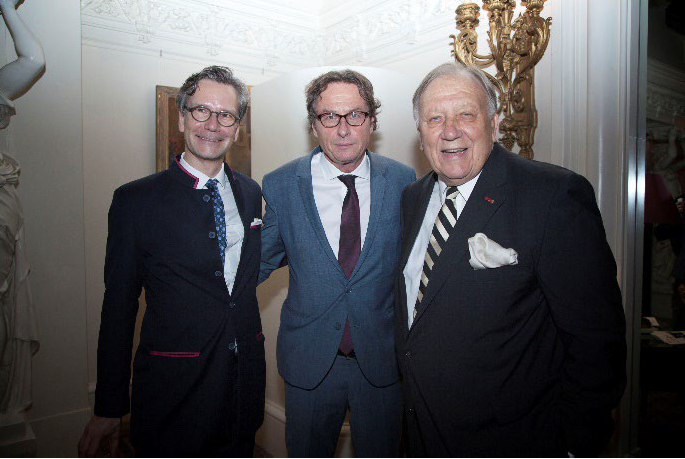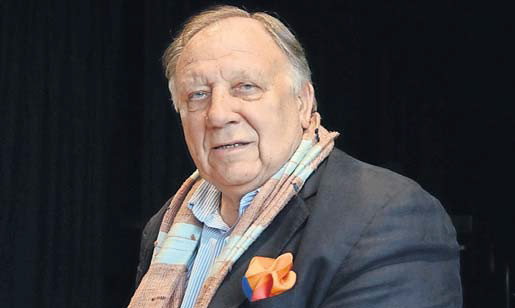Elysium between two Continents Celebrates its 35th Year
by Nino Pantano, October 23, 2018
On the evening of Wednesday, October 10th, Elysium between two Continents celebrated its 35th Year at the NY Lotos Club. According to the program notes included, “Elysium – between two continents fosters artistic and academic dialogue and mutual friendship between the United States of America and Europe. Elysium fights against ignorance, discrimination, racism, hatred, and anti-Semitism by means of art.” ![]()

Elysium Between Two Continents Presents
The Thirtieth Annual Erwin Piscator Award
A review by Nino Pantano, published in Opera-L, April 10, 2017
On the afternoon of Thursday, March 30th, Elysium Between Two Continents Presented The Thirtieth Annual Erwin Piscator Award at the intimate and elegant Lotos Club in New York City. This program is to benefit Elysium’s International Educational Programs “Art and Education without Borders.” The Lotos Club gathering that afternoon evoked memories of a musical soiree at the Kennedy White House when President Kennedy said it was “the most illustrious gathering of intellects since Thomas Jefferson dined alone.” ![]()

Legacy of the Emigrants
Gregorij von Leïtis stages works by Jewish artists:
“I cannot allow them to die a second time”
“And everything will be well,” wrote the Jewish writer Ilse Weber in her “Emigrants Song” in Theresienstadt. In October 1944, she is murdered in Auschwitz-Birkenau. Viktor Ullmann composed 21 works in Theresienstadt. „The Lay ov Love and Death of Cornet Christoph Rilke” for speaker and orchestra or piano is the last composition which Ullmann finished, before he, too, was deported to Auschwitz in October. Decades later, Gregorij von Leïtis performed this piece in more than 20 cities. The theatre director of Lithuanian descent has staged the works of Jewish composers and writers since 1997. But for Gregorij von Leïtis Jewish Humanism is the cultural heritage of a Europe which disappeared with the Shoa, and for which he longs. Not only on the stage he lives in yesterday’s world. ![]()



